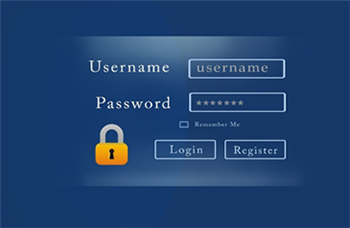Keeping Your Child Safe on the Internet
Keeping Children Safe Online
ALL TOPICS
- YouTube Parental Control
-
- How to see your YouTube history?
- What is Metaverse? Parent Guide
- Put parental controls on YouTube
- Delete TikTok Account without Phone Number
- Ways to block YouTube channels
- Ways to Get Somone's IP Address and Hide IP Address
- A complete guide on YouTube parental control
- What is Fanfiction? Parents Guide
- Kids safe YouTube alternative
- Top 5 TikTok Alternatives
- Methods to restrict YouTube adult content
- Social Media App Parental Controls
- Parental Control Tips
Sep 11, 2024 Filed to: Health & Education Proven solutions
We are more than accustomed to our children using the Internet at any time and any age. As parents, we have the responsibility to know how to manage the Internet well to have a good guide in its use. We all know how important it is to keep our children on the Internet safe and protect them, but it is also essential to listen if your child has online problems and to know the dangers that may exist. The access of minors to the Internet and mobile devices is massive does not mean that they are aware of the risks of new technologies, both in terms of excessive use and from the point of view of exposure to inappropriate content.
Hence, as parents, we should take up the responsibility to keep our children safe on the internet. You will find 10 useful tips to keep children safe online in this article. Choose the one that is the most proper one for you.

Potential Online Risks that Kids are Facing
As parents of teenagers, we worry about the risks of social networks. Because inappropriate contents for minors appear without warning on all mobile devices, they are usually very attractive. False images and harmful videos promote bad habits, negative values, and misleading information, which our small ones access easily. A direct search is when moved by curiosity they enter any site that solves their doubts. However, they do not always find the correct information. There are three foremost dangerous situations for children existing online: Grooming, Sexting, and Cyberbullying. So, we should be serious to safe keep our teens from any type of unexpected online risks.
10 tips to keep your kids safe online
Here is our list of the best 10 tips for keeping children safe online that given below.
Tips 1: Set internet filter and content blocker
As we all know, you can find almost everything on the internet with the right searching words, should it be useful or harmful. Parents can not stay with children whenever they need to search for certain information online. Thus, we can make use of solutions like FamiSafe. It gives you better control of the internet and allows you to effectively filter certain sites through a blacklist of URLs and specific keywords. Additional advantage: you can adjust these prohibitions according to the age of your children. An Internet security suite also provides you with an additional level of security. FamiSafe is the most effective blocking app to safe keep our kids from inappropriate content. Do not forget to apply it to your laptops, smartphones, and tablets to keep your child safe.
- Location Tracking & Geo-fencing
- App Blocker
- Web Filtering
- Screen Time Control
- Smart Parental Control Setting
Tips 2: Establish rules and guidelines at home
Most kids are too young to have self-control while using digital devices. They tend to overuse the screen time or stay up late playing games. Parents can establish rules for digital device usage at home to help them develop a better habit. This may include setting time limits in front of the screen, the type of content children access online, or the appropriate tone of the language they use on the Internet. These rules may vary depending on the age, maturity, and knowledge about each child's online risks. Using FamiSafe, parents could easily set the screen time limit for keeping children safe from online risk.

Tips 3: Encourage your children to connect in common spaces
It is about achieving a balance in which they do not feel that you are constantly watching over their shoulder and do not feel that they have to hide what they do online. It will help you be calm about what they are doing, and they will know that they can turn to you when they feel confused, scared, or worried.

Tips 4: Teach children to think before they click
Whether searching online video sites, receiving an unknown link in an email or simply browsing the web, remind your children not to click on links that could take them to dangerous or inappropriate places. Clicking on unknown links is one of the most common ways people get infected with viruses or reveal private and valuable information about themselves.
Tips 5: Make your children aware of the dangers of social media
Speak openly and freely with your children about the dangers of sharing photos, videos, private messages and answer their questions. And why not surf with them to show them what consequences their publications can have on themselves and others? Also, for keeping children safe, teach them not to click on links they do not know, not to share their private content with strangers, to disconnect systematically from their session once completed.
Tips 6: Learn about different social media and their uses
Facebook, Twitter, Snapchat, Instagram, Vine, or Tumblr are among the favorite networks of young people. Not to mention that new ones are born almost every month! To each media, its habits, and therefore its risks. If you do not create a profile on each of them, find out at least about the type of use they involve to identify potential threats: exchange videos, instant messages, and chat with strangers.

Tips 7: Impose an age limit
If most social networks mention 13 as the legal limit for creating an account, it is not difficult to lie about its date of birth. The Online Child Privacy Protection Act does not allow businesses to collect personal information about children under the age of 13 without their parents' permission. But it's up to you to make sure this rule is respected in your home.
Tips 8: Be alert to dangerous content
From websites to apps, games, and online communities, your children have access to a large amount of content that can affect them both positively and negatively. How can parents get alerted if their children have come across dangerous content on apps like YouTube, Facebook, or Twitter? Using FamiSafe with its Explicit Content Detection, as well as the browser's own security settings, you can receive a notification whenever your kids receive explicit words on their social account or browse harmful websites.
Tips 9: Check your child's privacy settings regularly
Like antivirus for your computer, the privacy settings on social media are the nerve of war. Check them regularly as they evolve constantly. Result: sometimes difficult to separate things and see the changes. But without even having voluntarily modified them, your child's account may be no longer as "private" as it was.
Tips 10: Create a complex password
As with any online account, the first security goes through the quality level of the password. The first step to discover an account. The longer and more complex a password, the harder it will be to detect. So remember to apply some very simple principles to safe keep your children's access codes. Also, ask them not to divulge or write them! Otherwise, change them immediately.

Today's children are always connected to the world through the Internet. They are probably more at home online than you are. The problem is that there are things on the Internet that you prefer not to encounter: sites that promote violence, sites full of hatred, and pornographic sites that promote a distorted and biased conception of human sexuality. You cannot supervise every moment that they surf the web on a device. This is where the parental control software FamiSafe comes into play, with the ability to filter unwanted content, limit the time of use, and, in some cases, monitor interactions on social networks. For keeping children safe, protect them as they explore the digital world on their devices with family protection features offered by FamiSafe. You can download the app from App Store or Google Play for free.

Thomas Jones
chief Editor